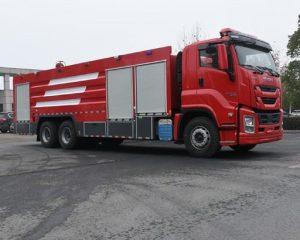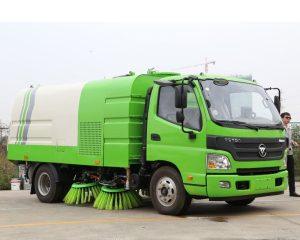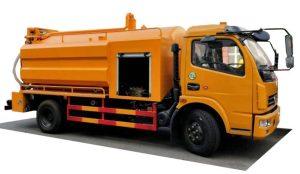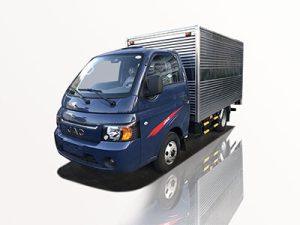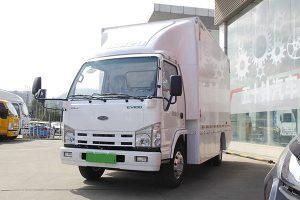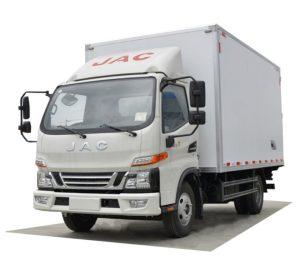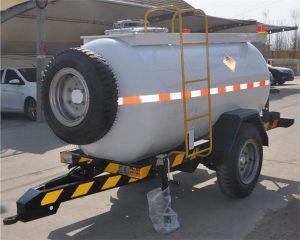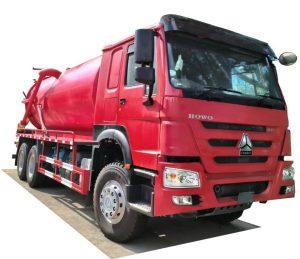Monday to Saturday - 8:00 -17:30
Everything You Need to Know About Fire Truck Water Pumps
Introduction
When it comes to firefighting, nothing is more critical than the ability to deliver water quickly and efficiently. Fire truck water pumps play a central role in this process, serving as the heart of any firefighting vehicle. This comprehensive guide will delve into the mechanics, types, maintenance, and benefits of fire truck water pumps, ensuring that you understand their importance in emergency response. Whether you are a firefighter, a fire department administrator, or simply a curious reader, this article aims to provide valuable insights into this essential equipment.
The Importance of Fire Truck Water Pumps
Fire truck water pumps are crucial for a range of reasons:
- Efficient Water Delivery: Pumps ensure a consistent and powerful flow of water, which is essential during firefighting operations.
- Quick Response: The ability to draw from various water sources helps firefighters react swiftly to emergencies.
- Versatility: Fire truck pumps can be used in various scenarios, from structure fires to wildland firefighting.
Types of Fire Truck Water Pumps
1. Centrifugal Pumps
Centrifugal pumps are the most common type of water pump used in fire trucks. They work by converting rotational energy into hydrodynamic energy.
| Characteristics | Advantages | Disadvantages |
|---|---|---|
| High flow rates | Efficient for large volumes of water | Less effective for high-pressure applications |
| Simple design | Easy to operate and maintain | Can be damaged with air ingestion |
2. Positive Displacement Pumps
These pumps move water by trapping a fixed amount of it and forcing it into the discharge pipe. They are typically used for low-flow, high-pressure applications.
| Characteristics | Advantages | Disadvantages |
|---|---|---|
| High pressure | Ideal for hoseline equipment | Slower flow rates |
| More complex | Excellent for foam application | More maintenance required |
How Fire Truck Water Pumps Work
Basic Mechanics
Fire truck water pumps operate by sucking in water, usually through a hose connected to a hydrant or another water source, and then expelling it under pressure through a nozzle. Here’s how the process works:
- Water is drawn into the pump via an inlet.
- The pump’s impeller or rotor creates a centrifugal force, moving the water outwards and increasing its velocity.
- The flowing water is then expelled into the discharge hose, where it can be directed at the fire.
Pressure and Flow Rate
The two critical factors associated with fire truck water pumps are pressure and flow rate. Understanding these terms is vital for effective firefighting:
- Pressure: Measured in pounds per square inch (PSI), it indicates how forcefully the water is expelled.
- Flow Rate: Measured in gallons per minute (GPM), it indicates the volume of water delivered within a specific timeframe.
Selecting the Right Pump for Your Fire Truck
Key Considerations
Choosing the right fire truck water pump depends on various factors. Here are some essentials to keep in mind:
- Type of Fire: Different fire situations may require different pump types. Structure fires, for instance, might call for high flow rates.
- Water Sources: Understand whether you will primarily draw from hydrants, rivers, or other sources influence your pump choice.
- Vehicle Size: Make sure the pump fits well within your fire truck’s specifications.
Examples of Common Applications
Various fire scenarios require specific pump characteristics. Below are some applications:
- Urban Fires: Typically require high flow rates and pressure to combat building fires.
- Rural Fires: May use lower flow rates but require pumps that efficiently draw from lakes or pools.
- Wildland Fires: Often utilize portable pumps capable of high pressure and moderate flow rates.
Maintenance of Fire Truck Water Pumps
Regular Inspections
To ensure that fire truck water pumps function optimally, regular inspections are essential. Here are some key maintenance tips:
- Check for leaks in hoses and fittings.
- Inspect impellers and wear rings for damage.
- Ensure air valves are clean and functioning properly.
Annual Service Checks
Once a year, it’s advisable to perform a more comprehensive inspection:
- Change any worn-out seals and gaskets.
- Test the pump at varying flow rates and pressures.
- Flush the pump with clean water to remove debris.
Common Problems and Solutions
1. Pump Failure to Prime
This is a frequent issue, where the pump fails to draw water. Troubleshooting steps include:
- Check for air leaks in the suction line.
- Ensure the pump is full of water before starting.
- Inspect the intake strainer for clogs.
2. Insufficient Water Pressure
If the pump is delivering insufficient pressure, possible solutions include:
- Inspecting the impeller for wear.
- Checking for blockages in the discharge line.
- Testing the pump’s functionality under different loads.
Innovations in Fire Truck Water Pumps
Modern Technologies
Technological advancements have led to the design of more efficient fire truck water pumps. Here are some innovations to look out for:
- Electronic Control Systems: Automate pressure adjustments and ensure optimal performance during operations.
- Hybrid Pump Systems: Combining electric and diesel engines for more versatile operations.
- Smart Monitoring: Sensors that track operational efficiency, alerting firefighters to issues before they become critical.
Eco-Friendly Solutions
With a growing demand for eco-friendly approaches, some modern pumps use less water or utilize alternative methods, such as:
- Water mist techniques to minimize water usage.
- Foam solutions that require less liquid and provide better coverage.
Training Firefighters on Pump Operations
Importance of Education
Proper training on how to operate and maintain fire truck water pumps is crucial for firefighters. Ongoing education ensures that they can respond efficiently in an emergency.
Training Programs
Many fire departments offer comprehensive training programs that cover:
- Pump operation techniques.
- Maintenance protocols.
- Emergency response strategies related to pump operations.
FAQs about Fire Truck Water Pumps
1. What is the average life span of a fire truck water pump?
The average lifespan can vary, but with proper maintenance, a fire truck water pump can last over 10 years.
2. How do firefighters know how much water they need?
Firefighters assess the fire’s intensity and type, determining the necessary water flow and pressure based on industry standards and departmental protocols.
3. What should I do if my fire truck water pump is leaking?
If you notice a leak, it’s essential to inspect the hoses and fittings immediately. Repairs should be made as soon as possible to prevent further damage.
4. Can I retrofit an old fire truck with a new water pump?
In most cases, yes. However, it is crucial to consult with experts to ensure compatibility and efficiency with the existing system.
5. Are there regulations governing fire truck water pumps?
Yes, various local, state, and federal regulations govern the specifications for fire truck water pumps, including performance standards and safety requirements.
6. What is the cost of replacing a fire truck water pump?
The cost can vary widely, ranging from a few thousand dollars to tens of thousands, depending on the pump type and installation requirements.


